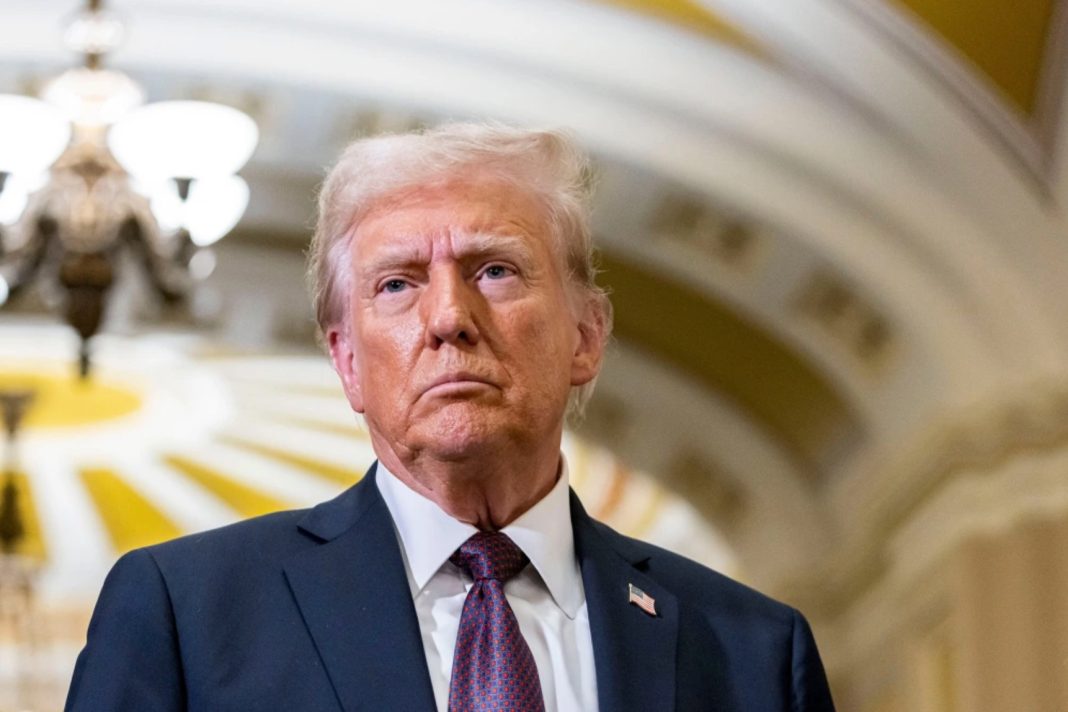WASHINGTON, USA – President Donald Trump has escalated his campaign against Harvard University, threatening to strip the institution of its valuable tax-exempt status after it rejected the White House’s demands aimed at combating antisemitism on campus.
This move follows the Trump administration’s decision to freeze more than $2 billion in federal funds allocated to the university.
In a post on his social media platform, Truth Social, Trump warned that Harvard could face consequences beyond the immediate financial sanctions, specifically targeting its tax-exempt status.
Universities, along with many charitable and religious organizations, typically benefit from exemptions on federal income taxes.
However, this status can be revoked if the institution becomes involved in political activities or deviates from its stated mission.
Trump expressed his displeasure with Harvard’s refusal to comply with the government’s demands, suggesting that if the university persists, it should be taxed as a political entity.
“Perhaps Harvard should lose its Tax Exempt Status and be Taxed as a Political Entity if it keeps pushing political, ideological, and terrorist inspired/supporting ‘Sickness?’” Trump wrote.
“Remember, Tax Exempt Status is totally contingent on acting in the PUBLIC INTEREST!”
The threat of losing its tax-exempt status could cost Harvard millions of dollars annually, making it a significant blow to the prestigious institution.
The White House’s demands, sent to Harvard in a letter on Friday, April 11, 2025, outlined sweeping changes to the university’s hiring, admissions, and teaching practices.
The proposed measures included reporting students to the federal government for being “hostile” to American values, ensuring “viewpoint diversity” in academic departments, and hiring an external government-approved party to audit programs for antisemitic harassment.
The letter also called for disciplinary actions against faculty and students involved in the pro-Palestinian protests on campus, which were seen as a reaction to the Israel-Hamas conflict.
Harvard President Alan Garber rejected these demands in a letter to the White House, asserting that the university would not relinquish its independence or violate its constitutional rights, particularly the First Amendment, which protects free speech.
Garber emphasized that while the university was committed to addressing antisemitism, many of the White House’s demands amounted to government interference in the academic environment.
Shortly after Harvard’s rejection, the Department of Education announced it would freeze $2.2 billion in grants and $60 million in contracts to the university.
The department criticized Harvard for fostering an “entitlement mindset” and stated that the harassment of Jewish students and the disruption of campus life were “unacceptable.”
This move is part of the Trump administration’s broader strategy to reshape higher education by imposing stricter controls on university policies.
Harvard, with its $53 billion endowment, is among the wealthiest institutions in the United States and is seen as a significant player in the administration’s efforts to challenge academic freedom and curb what it perceives as a politically biased environment in higher education.
In March, the Trump administration also reviewed $256 million in federal contracts and $8.7 billion in multi-year grants to Harvard.
Harvard professors have filed lawsuits, alleging that the government is unlawfully attacking their academic freedom and freedom of speech.
The situation with Harvard follows a similar dispute with Columbia University, where the White House pulled $400 million in funding last month.
Columbia agreed to several of the administration’s demands, a move that sparked criticism from students and faculty who saw it as a capitulation to political pressure.







